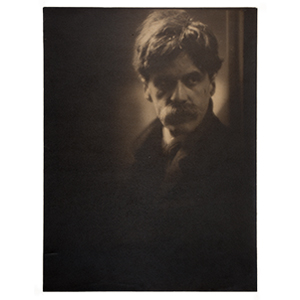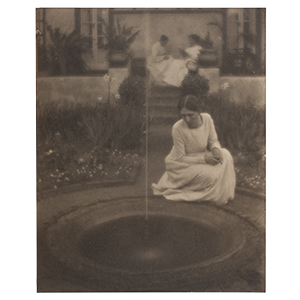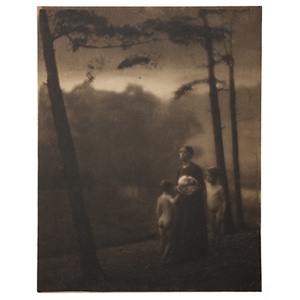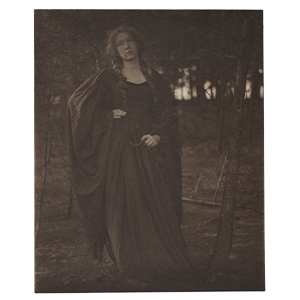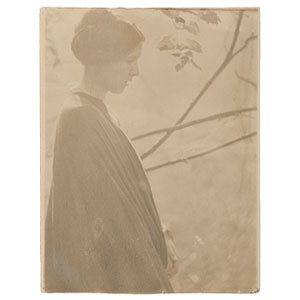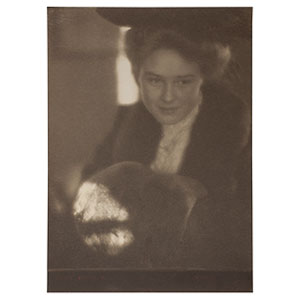Clarence H. White
American, 1871–1925
Clarence White took up photography while working as a bookkeeper in Newark, Ohio. Self-taught, he participated in the First Philadelphia Photographic Salon in 1898, only to serve on the jury himself the very next year, alongside Gertrude Käsebier and F. Holland Day. He soon joined the American circle of Pictorialist photographers.
White’s most frequent subjects were his family and friends, whom he roused out of bed for early-morning photography sessions before his workday began, when he could capture a unique quality of light. In 1904 he devoted himself to his art full-time, and two years later he moved his family to New York, in part to be closer to Stieglitz and other members of the Photo-Secession. Yet skyscrapers, trains, and other elements of the urban milieu never appear in his resolutely tranquil oeuvre.
Stieglitz included White’s photographs in six issues of Camera Work and devoted the entirety of the July 1908 publication to him. White was also featured, alongside Käsebier, in the third exhibition at 291, in 1906. But, like many others, he became disillusioned with Stieglitz’s authoritarian leadership of the Photo-Secession and in 1916 joined Käsebier and Alvin Langdon Coburn in founding the Pictorial Photographers of America as a more inclusive organization. He also taught photography classes, opening the Clarence H. White School of Photography in 1914. There he mentored many modernist photographers of the next generation, including Anton Bruehl, Dorothea Lange, Paul Outerbridge, and Margaret Bourke-White.

